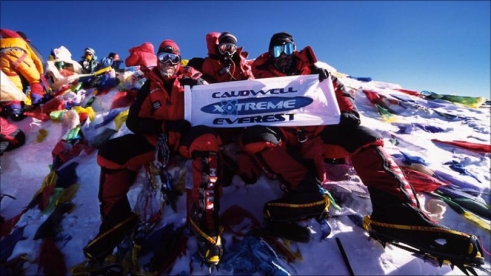Xtreme Everest researchers published data from CXE 2007 in the Journal PLOS ONE this week. Professor Mike Grocott and Dr Dan Martin have both been quoted by journalists reporting on our findings in the international media.
CBS News reported:
"Research conducted on climbers atop Mount Everest offers new insight into the biological triggers for Type 2 diabetes.
Specifically, the British investigators learned more about how low oxygen levels in the body (hypoxia) may be linked with insulin resistance, a risk factor for diabetes. Insulin resistance occurs when cells in the body fail to respond to insulin, the hormone that regulates blood sugar levels."
The study used data collected from our 2007 investigator team.
Mike Grocott commented: Ă¢€œThese results have given us useful insight into the clinical problem of insulin resistance. Fat tissue in obese people is believed to exist in a chronic state of mild hypoxia because the small blood vessels are unable to supply sufficient oxygen to fat tissue. Our study was unique in that it enabled us to see things in healthy people at altitude that we might normally only see in obese people at sea level. The results suggest possible interventions to reduce progression towards full-blown diabetes including measures to reduce oxidative stress and inflammation within the body."
Dan Martin added: "It also demonstrates the value of using healthy volunteers in studies carried out at high altitude to patients at sea level. Our high altitude experimental model for investigating every day illnesses that involve tissue hypoxia is a fantastic way to test hypotheses that would otherwise be very difficult to explore."




